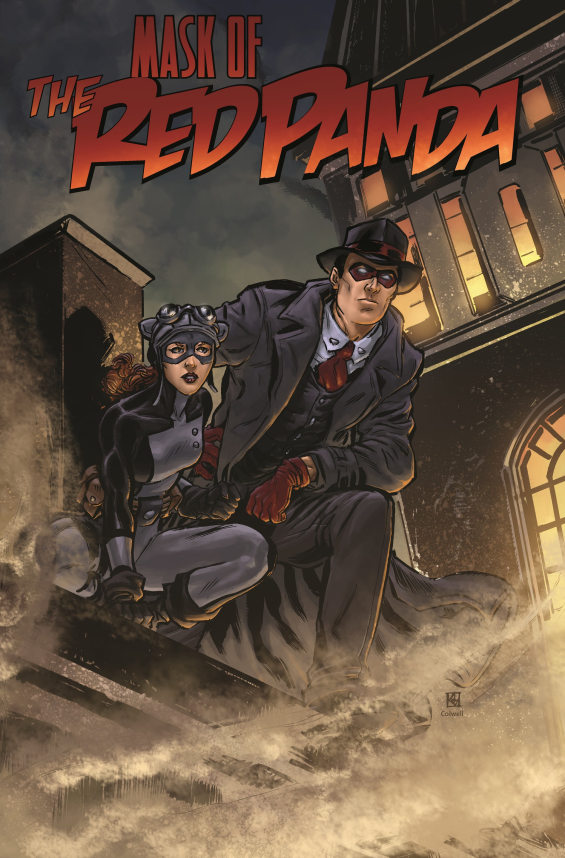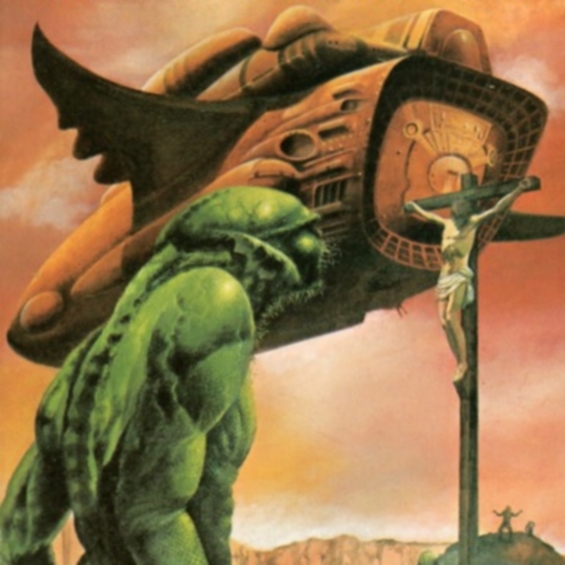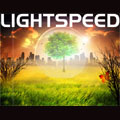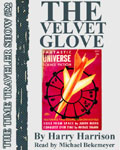
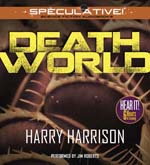 Deathworld
Deathworld
By Harry Harrison; Read by Jim Roberts
Publisher: Brilliance Audio
6 hours [UNABRIDGED]
Themes: / gambler / psionic abilities / planetary worlds / planetary colonists /
Publisher summary:
Professional gambler Jason dinAlt, who has ‘psionic’ abilities, is hired to win a great deal of money for a mysterious and very imposing stranger. When he ‘breaks the bank’ their expertly timed escape gets them off-world just in time. The gambler learns he has helped the dwellers of Pyrrus, otherwise known as ‘Deathworld’ – a planet that appears to be fighting and trying to destroy its inhabitants. Intrigued, he determines to see this world and learn its secrets. He discovers that there are colonists who live outside the embattled city who are not under constant and ever evolving attack from the planet. Jason’s efforts to help the city dwellers and re-unite the two planetary groups before they are all destroyed makes for a gripping listen.
Deathworld is one of Harry Harrison’s early books written in the finest tradition of the pulps with a forced romance and a flimsy excuse, but highly entertaining nevertheless. Jason dinAlt, the psionic gambler with a heart of gold, decides to go the the deadliest known planet in the universe due to a fit of malaise and stays there in spite of a rather tedious training period (made more enjoyable if you imagine Eye of the Tiger playing in the background). However, once he gets released into the general population, the mystery of Pyrrus picks up and it’s certainly a mystery I never suspected.
Pyrrus itself, presumably named after the war of attrition being fought there, is a dreadful world where even the plants can kill you, but the ingenuity of the planet’s lethalness and the two societies it has created are a nice backdrop to the adventure plot. Our exposure to the wildlife is more limited than I’d like with the focus being on the warfare instead. The relationship between the aptly named Junkmen and Grubbers is much more developed and is one of the most interesting elements of the story. Their mutual hostility reflects the tension between industrialism and agrarianism that is always prevalent in developing civilizations.
The characters themselves are mostly flat and underdeveloped, everyone according to their role and no more. Meta, Jason’s love interest, is especially annoying to me, though that may have been because of the complete lack of chemistry between her and Jason. She feels like a perfunctory character whose actions and reactions are dictated by the needs of the story rather than any sort of internal motivation. Jason, too, doesn’t have much a character arc (although I trust he isn’t as bored by the end as he was before Pyrrus). As a gambler he’s willing to put his life on the line for a hunch but his investment in the fate of the world is never fully explained beyond a general sense of goodwill. Still, what is character development in the face of carnivorous plants, poisonous animals, murderous bacteria, and the perpetual threat of volcanic eruptions? I’m not going to read a book called Deathworld for characters talking about their feelings.
Should you feel inclined to listen to this book, I don’t recommend this audiobook. The narrator, a Mr. Jim Roberts, was flat, boring and completely wrong for the tough characters and fast-paced action. It felt like I was being read to by a New York accountant, a well-meaning but unsuccessful uncle. The characters all sound the same and no attempt is made to put emotion into them. With a story like this, the right narration can really make or break it. I’d recommend either reading the book yourself or finding another version of the audiobook.
Posted by Rose D.


